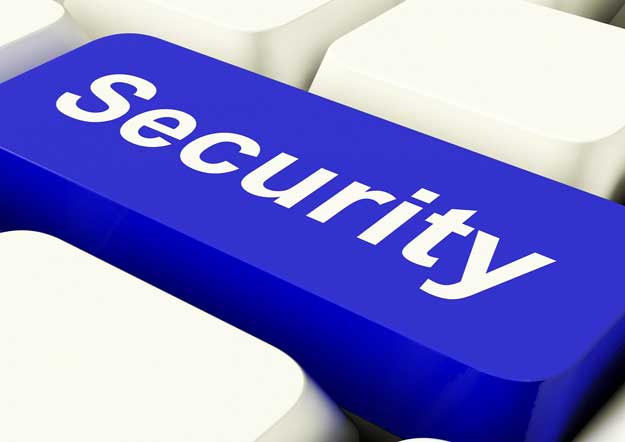These days, it’s virtually impossible to avoid using the Internet for something, whether it’s for switching funds between your bank accounts, paying your bills or simply checking your emails. However, because it’s now commonplace to use the web for financial transactions, it’s become essential to take the steps to ensure your security online. That’s why we’ve worked together with WebHostingBlueBook.com to bring you these tips on keeping your details safe.

Always know who you’re dealing with
One of the most common ways that scam artists trick people into revealing their financial information is by fooling them into following a fake link using a phony email. The scam works like this – the trickster sends an email to the victim purporting to be from a legitimate source that the user actually does work with (i.e. their bank) asking them to follow a link and re-submit their details. (Ironically, they will sometimes claim that this is for ‘security reasons’.) The key to combating this tactic – which is called ‘phishing’ – is two-fold. Firstly, never follow links to financial sites until you’ve checked that they are legitimate always type in URLs yourself. Secondly, always check whether the sender address is legitimate – it should come from exact URL of the sender. For example, if your bank’s website is ‘www.bank.co.uk’ then any e-mails should read ‘[email protected]’. Sometimes, phishers will try to trick you by using a similar address, such as ‘[email protected]’ or the like. If you’re unsure, always call your bank to check.
If it looks too good to be true, it probably is
Another of the most common scams on the web are adverts that promise return on investment that they can’t deliver. You’ll definitely have seen these adverts before, probably in a website’s sidebar. They’ll read something like ‘I make $4000 per day working from home, click here and you can, too!’ or something similar. Any links like this should be ignored, and any emails promising something similar should be deleted immediately.
Constantly update your security software
It’s amazing how much of a common problem this is. Whilst most web users are aware of how important it is to make use of anti-Spyware and anti-virus software, many people don’t realise how easily they can become ineffective. Unfortunately, it’s a fact that viruses constantly grow and evolve to become more dangerous, finding ways to get past previous versions of preventative software. It’s for this reason that anti-virus software consistently needs to update – so it can update its database and keep itself aware of new threats. So however annoying it might be, never delay in allowing those updates to be installed!
Don’t use the same passwords all the time
Of all the most common mistakes people make when using the web, this might well be the silliest. In a way, it does make sense to use the same password all the time: with absolutely everything from your e-mail to your fantasy football team requiring a login, it can be seriously tough to keep track of all of them, much less remember them when you actually need to. However, the last thing you want to do is keep the same password for all of your accounts. If less-than-scrupulous individuals obtain one of your passwords, they WILL then try to use it for all the others – unfortunately, this practise means that it’s often worth them checking. The best way to counter this is to knock up a simple spreadsheet (if you don’t want to pay for Microsoft, OpenOffice is entirely free) with your passwords on, and keep it away from any networked folder. To find out more, go here.

